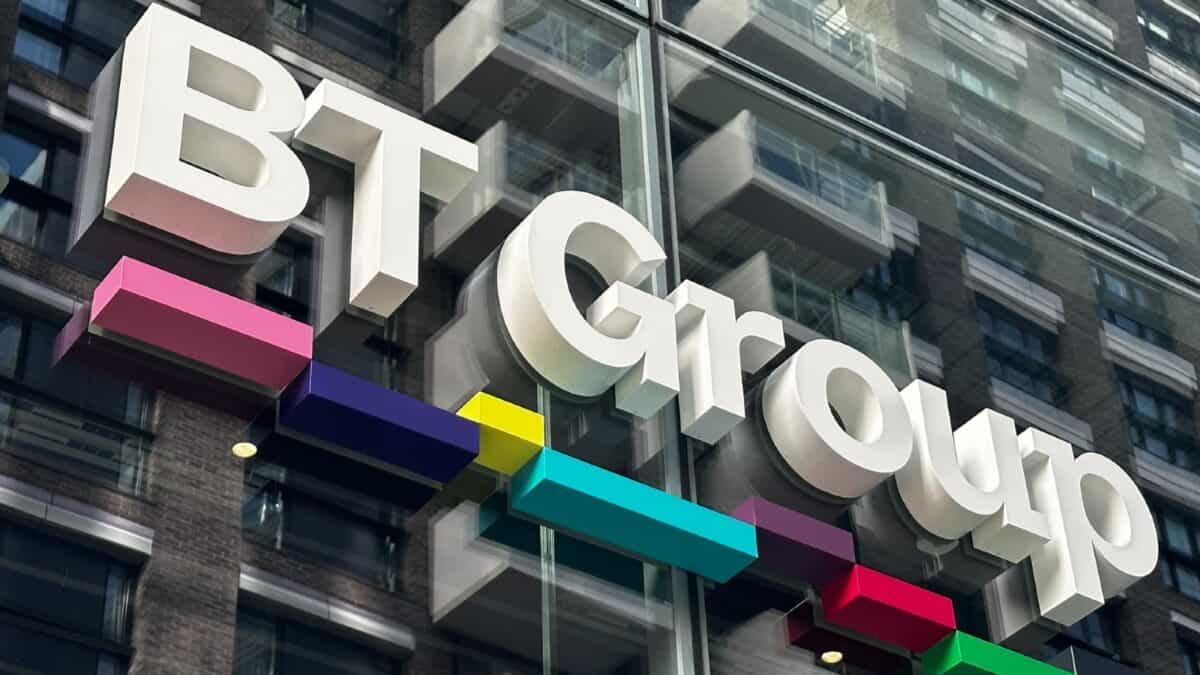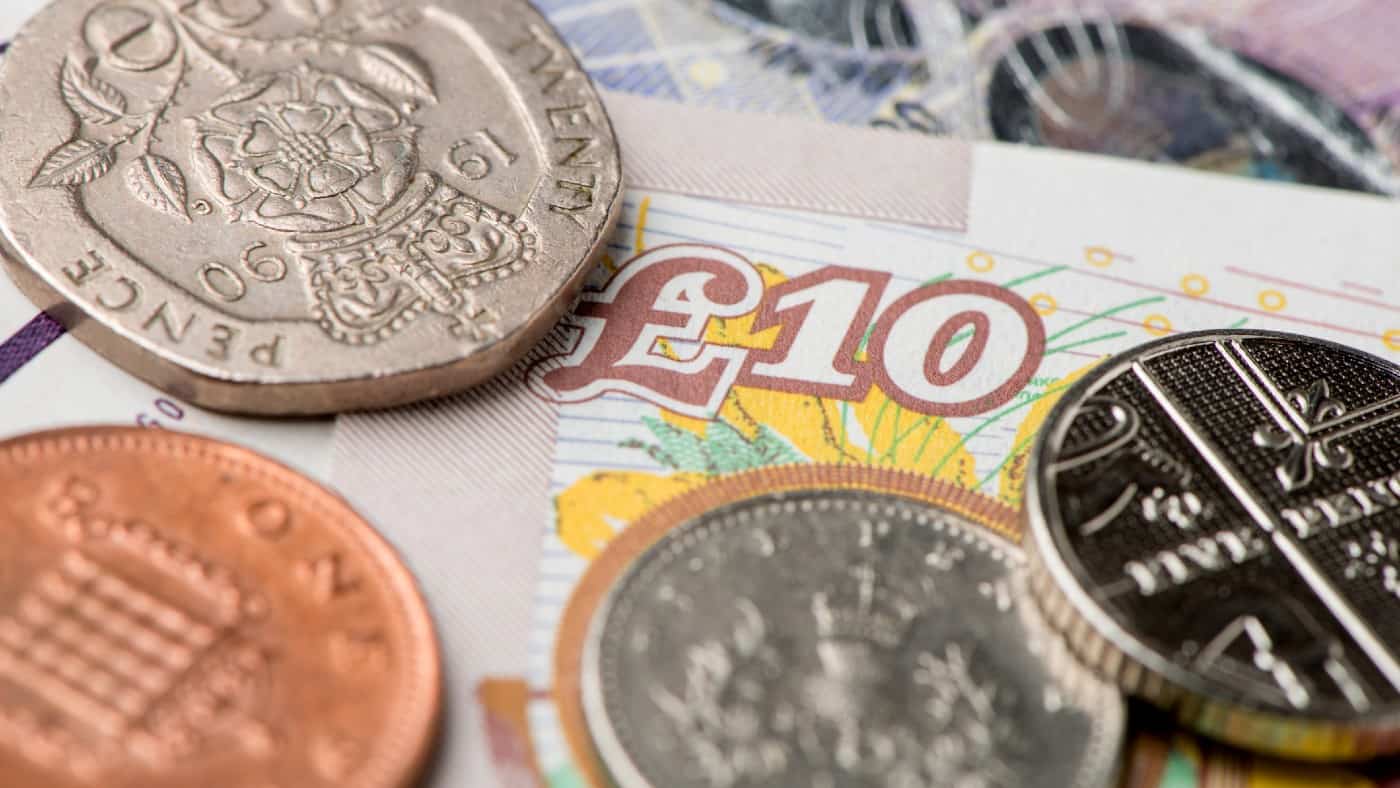How many dirt cheap BT shares must I buy to get £100 in monthly passive income?
With a chunky dividend yield, BT shares look immediately attractive if passive income's the goal. But Paul Summers doesn't like what he sees under the bonnet. The post How many dirt cheap BT shares must I buy to get £100 in monthly passive income? appeared first on The Motley Fool UK.


The UK stock market remains a wonderful source of passive income with one of the biggest payers being FTSE 100 telecommunications titan BT (LSE: BT-A).
But just how many its shares would I need to snap up to generate the equivalent of £100 a month in dividends?
Big yielder
Let’s start by taking a look at what’s on offer. As things stand, the shares come with a forecast dividend yield of 6.8%. That’s far more than the 3.8% I’d get from owning a fund that merely tracks the return of the index. This payout also looks like being comfortably covered by profit.
So far, so good. BT also looks dirt cheap at face value.
Shares currently change hands at a price-to-earnings (P/E) ratio of a little less than six. Few companies boast that sort of valuation in the UK’s top tier. Interestingly, BT’s international rivals also trade at a premium.
But stocks that are this lowly-priced are usually lowly-priced for one reason or seven. So what gives?
Reasons to be wary
For me, there are a few things that are concerning. First is the lack of meaningful growth. Regardless of whether I’m investing for income or capital gains, I need to see evidence that a company’s trading well.
Back in February, the UK’s biggest broadband and mobile operator reported a better-than-expected 3% increase in Q3 revenue. However, a lot of this was down to price rises. Prices that some customers aren’t willing to accept and are moving on.
This doesn’t bode well and investors have continued to ditch the stock, lowering the price and raising the yield.
Second, I remain wary of the truckload of debt on the balance sheet.
Yes, some of this is the result of the company’s drive to push its fibre products across the UK. But the fact that BT carries this burden means that dividends are unpredictable, at best.
For evidence of this, the total payout in FY19 was 15.4p per share. Analysts are pencilling in less than half this amount for FY24.
Too much risk?
According to my calculations, I’d need to shell out a smidgen under £18,000 (16,341 shares) to get the equivalent of £100 a month in passive income. That’s an enormous amount of money for most private investors. It’s also a lot to invest in one company, let alone one whose stock has halved in value in five years.
This brings me to my final and most pressing concern. Passive income loses its shine when shares drastically underperform. It’s like taking one step forward and five steps back.
Granted, a fall in interest rates may lift sentiment. But I’m sceptical this will be sufficient to truly alter perceptions on the company’s outlook. Nor is the persistent rumour that BT could be bought out. I’ll believe that when I see some offers actually arrive.
Bottom line
All told, I’m not writing the £11bn juggernaut off as part of a diversified income-focused portfolio. However, it remains to be seen whether new CEO Allison Kirkby can push the company into a higher gear (while also dealing with its pension obligations) without upsetting dividend hunters along the way.
In the meantime, there are a huge number of better UK dividend stocks out there that I’d rather snap up.
The post How many dirt cheap BT shares must I buy to get £100 in monthly passive income? appeared first on The Motley Fool UK.
Should you buy BT now?
Don’t make any big decisions yet.
Because Mark Rogers — The Motley Fool UK’s Director of Investing — has revealed 5 Shares for the Future of Energy.
And he believes they could bring spectacular returns over the next decade.
Since the war in Ukraine, nations everywhere are scrambling for energy independence,
he says. Meanwhile, they’re hellbent on achieving net zero emissions.
No guarantees, but history shows…
When such enormous changes hit a big industry, informed investors can potentially get rich.
So, with his new report, Mark’s aiming to put more investors in this enviable position.
Click the button below to find out how you can get your hands on the full report now, and as a thank you for your interest, we’ll send you one of the five picks — absolutely free!
setButtonColorDefaults("#5FA85D", 'background', '#5FA85D'); setButtonColorDefaults("#43A24A", 'border-color', '#43A24A'); setButtonColorDefaults("#FFFFFF", 'color', '#FFFFFF'); })()
More reading
- On the rise! I regret not buying these 2 cheap shares earlier. Am I too late?
- Down 50% in 5 years, does the BT share price reflect the 2024-26 dividend forecast?
- Down 26.7% in a year, what’s next for the BT share price?
- 3 UK shares I believe will boost my portfolio in 2024
- 7.2% yield and P/E of 5.8! Is this the best bargain on the FTSE 100?
Paul Summers has no position in any of the shares mentioned. The Motley Fool UK has no position in any of the shares mentioned. Views expressed on the companies mentioned in this article are those of the writer and therefore may differ from the official recommendations we make in our subscription services such as Share Advisor, Hidden Winners and Pro. Here at The Motley Fool we believe that considering a diverse range of insights makes us better investors.
What's Your Reaction?





















































